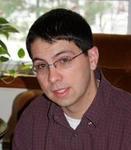Abstract
As engineering analysis & simulation has become an integral part of engineering design and life-cycle management across virtually all aerospace disciplines, the demand for High Performance Computing (HPC) resources to run these simulations continues to grow. The commoditization of HPC hardware over recent years has helped reduce the cost of these simulations, however, the ever-increasing demand for faster turnaround and higher fidelity simulations typically has outstripped the growth of the HPC resources available. Complicating the situation is HPC hardware evolves very rapidly and architecturally can change much faster than traditional IT resources, making it difficult for IT departments as well as the simulation software to keep pace. The effective stall in serial performance and resulting trend towards many core processors and accelerators for greater performance is providing developers and users of simulation software significant challenges in determining how to best utilize these modern HPC resources.
This presentation will overview the current and upcoming HPC technologies, and how these changes are affecting how engineering simulations, such as CFD, FEA, and MDO, are performed. Case studies from small and large aerospace companies will be also used to highlight some of the challenges encountered in accessing and using modern HPC resources efficiently and cost-effectively.
About the Speaker
Dr. Scott Northrup, SciNet
HPC Analyst

Scott Northrup has over 15 years of HPC experience as a software developer, administrator, and systems architect. His primary research expertise is in computational fluid dynamics, combustion modeling, and large-scale parallel numerical algorithm development. Scott holds a PhD and MSc in Aerospace Engineering from the University of Toronto Institute for Aerospace Studies with undergraduate degrees in Mechanical Engineering and Applied Mathematics.
In his current position as a HPC Analyst at SciNet, Canada's largest supercomputing center, his primary responsibility focuses on helping researchers and industrial users utilize SciNet's HPC facilities efficiently. He also does a significant amount of work evaluating, benchmarking, and implementing next generation HPC technologies.



